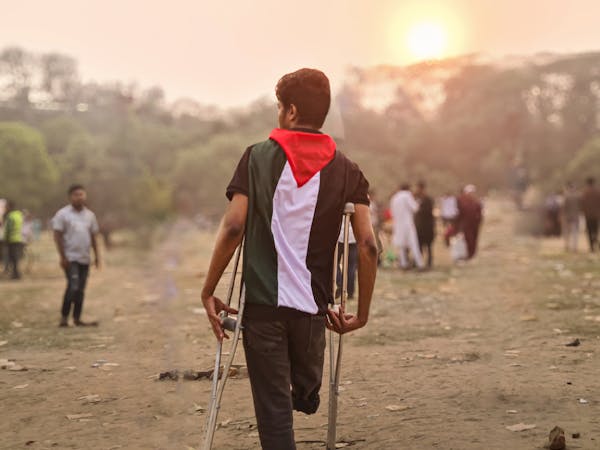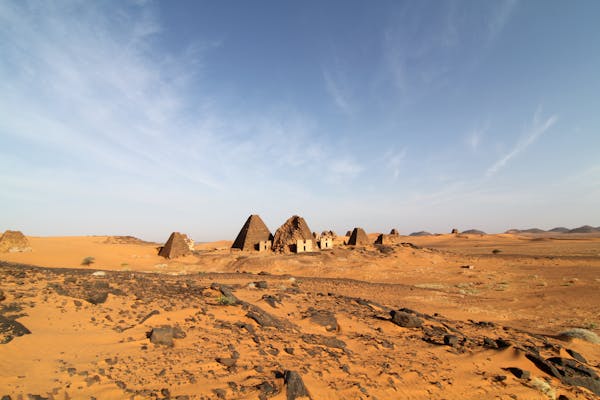You ever have one of those moments when you’re scrolling through your phone, and you come across a photo or a headline that just makes your heart drop? That was me the other night. It was late, I was half-asleep, and I stumbled onto a photo of a man in Gaza cradling what looked like his child — limp, dusty, eyes closed. I don’t know what hit me harder — the look on his face or the way the child’s shoe had fallen off. That little detail… it just broke me.
I’m not a political analyst. I’m not someone who usually writes about war or foreign affairs. I’m just a guy who reads the news, gets angry, gets sad, and sometimes feels like screaming into the void. But something about what’s happening in Gaza — what has been happening for years, really — won’t let me stay quiet anymore.
Let me just say this upfront: I believe every life matters. I believe no one should have to live in fear of rockets or airstrikes or being buried alive under rubble. That goes for everyone — Israeli, Palestinian, whoever. But when you look at what’s happening right now in Gaza, the sheer scale of the suffering — it’s impossible not to feel that something has gone deeply, deeply wrong.
A Place That’s Always on Edge
Gaza isn’t just some abstract place you hear about on the news. It’s home to over 2 million people. That’s moms, dads, kids, shopkeepers, teachers, students. People who wake up in the morning hoping it’s a day without sirens. People who’ve seen more death in one month than most of us will in a lifetime.
It’s easy to say “war zone” and forget that behind that term are faces, stories, lives. People fall in love in Gaza. People play soccer. They make music, go to school, hang out on balconies. Or at least, they try to — until the next round of missiles starts.
This war — the most recent one that began in late 2023 — has been one of the deadliest in recent memory. Hamas launched a brutal and shocking attack on Israel, killing civilians and taking hostages. Israel responded with overwhelming force. And like so many times before, it’s the civilians in Gaza who are paying the heaviest price.
The Death Toll Isn’t Just a Number
You hear the numbers in the news. Thousands dead. Over half a million displaced. Hospitals destroyed. But numbers don’t bleed. Numbers don’t scream for their mothers in the rubble.
There’s a clip I watched — I wish I hadn’t, honestly — of a young boy covered in ash, sitting silently beside the ruins of his house. A journalist asks him, gently, “Where’s your family?” and he just stares. That blank stare — it’s haunted me for weeks. You can’t fake that kind of grief. That’s the look of a child who’s seen too much.
People say war is hell. But this isn’t just war. This is a slow, suffocating collapse of humanity.
The Silence of the Powerful
What really gets me, though, is how quiet the powerful voices are. Governments issue their usual statements. “We urge restraint.” “We support Israel’s right to defend itself.” And meanwhile, Gaza burns.
Look, I get it — geopolitics is messy. Hamas is a militant group. They’ve committed atrocities. But does that justify cutting off electricity to a hospital filled with newborns in incubators? Does that make it okay to bomb entire apartment buildings?
There’s this phrase I’ve heard thrown around — “collateral damage.” What an awful, sterile way to describe someone’s sister, someone’s uncle, someone’s only child. It’s like we’ve found a way to talk about death without feeling anything.
What About the Kids?
This one hits me hard. Over half the population of Gaza is under 18. Imagine that. You grow up in a place where war is the background noise of your life. You don’t know what it’s like to feel safe. Your school has been bombed three times, and your parents talk about survival more than anything else.
There’s this video — maybe you saw it — of a little girl in a bomb shelter singing. Her voice is sweet, fragile, completely out of place in the chaos around her. But for a moment, it was like hope had a sound. Then the bombs came again.
You can’t tell me that’s normal. You can’t tell me the world should accept this.
A Ceasefire Isn’t Enough
Every time this happens, the pattern is the same. War breaks out. People die. The international community makes some noise. A ceasefire is announced. And then… silence. Until the next time.
But that’s the problem — there’s always a next time. Because nobody fixes the core issue. Nobody deals with the fact that Gaza is basically a giant prison. No freedom of movement. Limited access to clean water. Daily blackouts. Kids growing up with PTSD before they even know how to spell the word.
We don’t need another temporary truce. We need a real solution. One that gives Palestinians dignity, safety, and a future. One that ensures Israelis aren’t living under threat either. But to get there, you have to care about all lives. Not just the ones that fit your narrative.
Why the World Must Care
I’ve had people tell me, “Why do you care so much? It’s not your country.” And maybe that’s the problem. We’ve been conditioned to only care when it’s close to home. But empathy doesn’t have a border.
When people are dying in this kind of numbers — when babies are being pulled from rubble with their eyes still open — you should care. When journalists in Gaza say goodbye on camera because they’re not sure they’ll survive the night — you should care. When the people who are supposed to protect civilians either stay silent or make excuses — we all need to speak louder.
This war, like so many others, will leave scars. Physical ones. Psychological ones. But it will also leave a mark on us, those watching from afar. It will say something about who we are, what we value, and whether we’re capable of looking at suffering and saying: “Not again. Not like this.”
It’s Not Too Late
It’s easy to feel helpless. I’ve felt it too. What can one person do against missiles and drones and politics that feel ancient and immovable?
But silence helps no one. Even if you can’t change the world, you can bear witness. You can refuse to look away. You can donate to trusted aid groups, you can share stories that humanize rather than dehumanize, you can challenge your leaders to do better.
Because if enough of us care — really care — then maybe next time, the story changes.
One Final Thought
I keep going back to that photo. The man and his child. The dust. The shoe. And I think — what kind of world are we leaving behind if we let this keep happening?
If war becomes just another news cycle. If innocent lives are dismissed as necessary losses. If children become statistics.
We have to do better. We have to be better. For Gaza. For all of us



